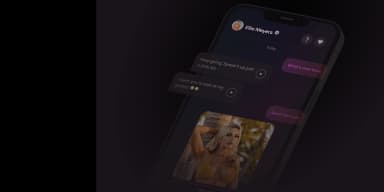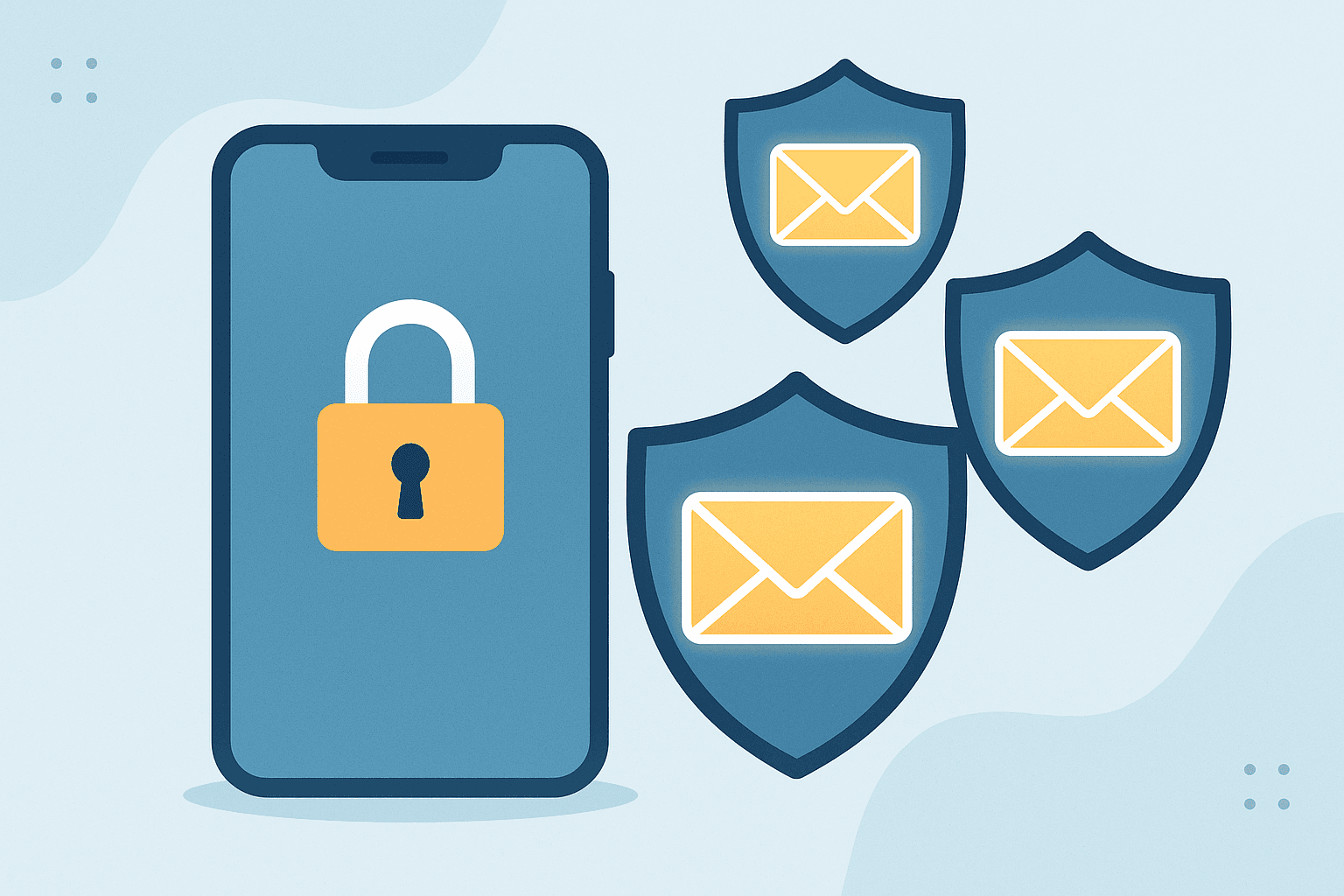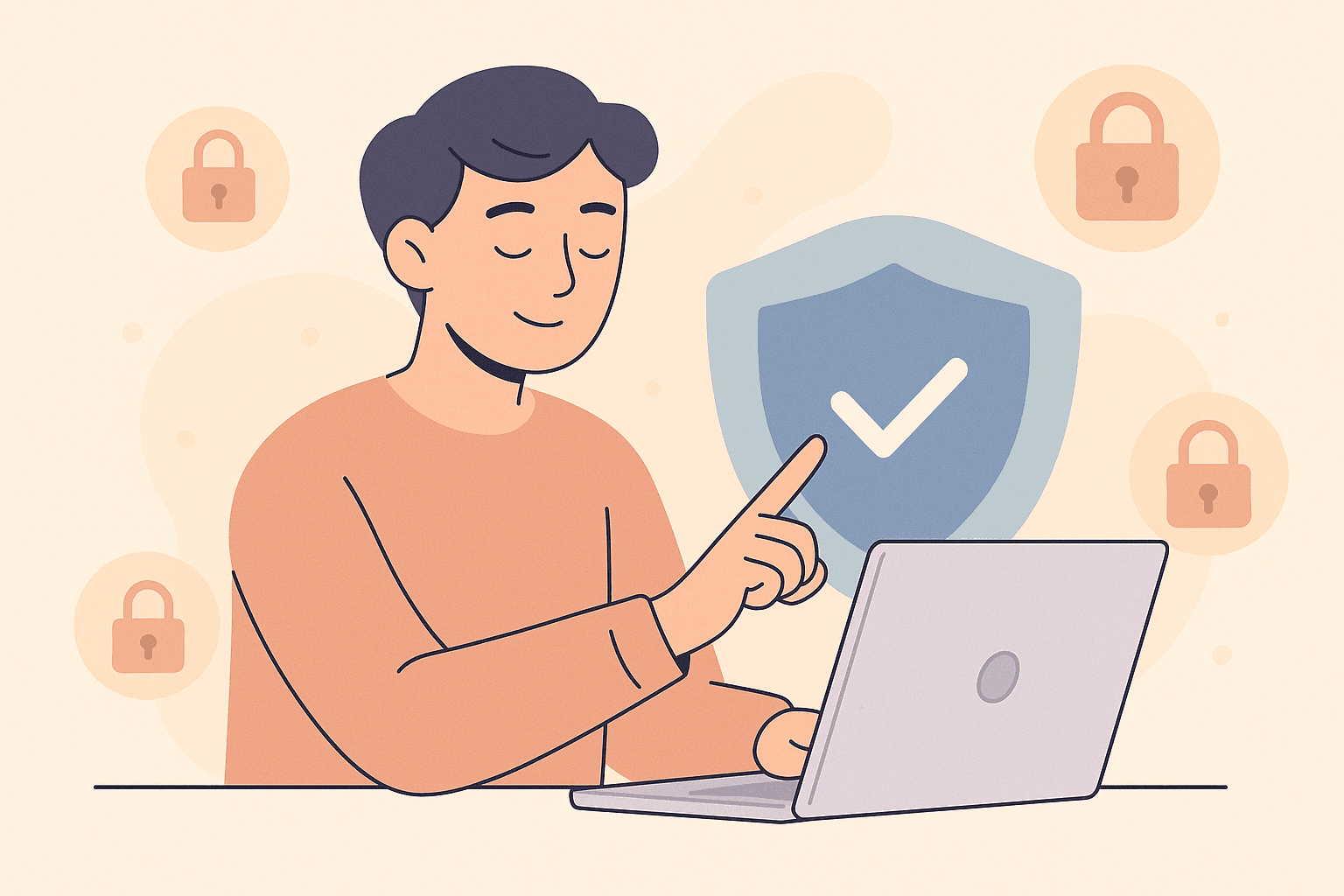
How to Protect Your Nudes and Private Messages from Leaks
Your AI girlfriend awaits
Chat instantly, get custom images, and more with your very own AI girlfriend
Chat with your AI girlfriend
What's covered
- •Why Protecting Your Private Content Matters
- •Common Risks in Sharing Intimate Photos and Texts
- •Real-Life Examples of Privacy Breaches
- •Simple Steps to Secure Your Nudes and Messages
- •Use Strong Passwords and Two-Factor Authentication
- •Choose Secure Apps for Sharing
- •Avoid Public Wi-Fi for Sensitive Content
- •Tools and Features That Help with Protection
- •Encryption Options for Messages
- •Apps with Self-Destructing Photos
- •What to Do If Your Privacy Gets Compromised
- •Steps to Report and Remove Leaked Content
- •Seeking Legal Help and Support
- •Conclusion
- •Frequently Asked Questions
- •Is it ever completely safe to send nudes?
- •What apps are best for private messaging?
- •How can I tell if my account has been hacked?
- •What should I do before sharing private photos?
Why Protecting Your Private Content Matters
Protecting your private content, like intimate photos and messages, keeps you safe from emotional harm and other dangers. When this information gets out, it can lead to stress, damaged relationships, or even threats to your job.
Common Risks in Sharing Intimate Photos and Texts
Sharing private images or texts comes with real dangers. Hackers might break into your accounts and steal your data.
Revenge porn is another big issue, where someone shares your photos without permission after a breakup. For example, if you send a nude to a partner, they could forward it to others or post it online.
Public Wi-Fi can also expose your messages to snoopers who intercept them. These risks can happen to anyone, no matter how careful you think you are.
Real-Life Examples of Privacy Breaches
Many people have faced serious problems from leaked private content. In one case, a celebrity's phone was hacked, and their nude photos spread across the internet, causing public embarrassment and legal battles. Another example involves everyday folks: a woman shared intimate texts with her boyfriend, but after they split, he posted them on social media to humiliate her.
She had to involve the police and remove the content. Stories like these show how quickly privacy breaches can turn into lasting harm, affecting mental health and personal safety.
Always think twice before sharing.
Simple Steps to Secure Your Nudes and Messages

Use Strong Passwords and Two-Factor Authentication
Strong passwords help keep hackers away from your accounts. You want them at least 12 characters long, with a mix of letters, numbers, and symbols. Take "password123" and change it up to something like "BlueSky!987Tree" instead.
Two-factor authentication gives you that extra bit of safety. It sends a code to your phone right after you put in your password. Stuff like Google and Apple have this built in for free. Set it up on your email, social media, and messaging apps. Even if somebody figures out your password, they still need that code to get inside. Setting it up only takes a minute, and it stops a bunch of break-ins.
Choose Secure Apps for Sharing
Pick apps that come with good security when you're sending private photos or messages.
Go for ones with end-to-end encryption - that means just you and the person getting it can see what's inside. Apps like Signal and WhatsApp do this by scrambling everything while it's moving.
Stay away from apps that skip these features, since they could keep your stuff on servers that aren't safe. Try out the app with some regular messages first to check how it handles things.
Avoid Public Wi-Fi for Sensitive Content
Public Wi-Fi at spots like cafes or airports can be a bad idea for sharing nudes or private texts.
Hackers like to hang around those networks and grab data. Better to use your own home Wi-Fi or mobile data for that kind of thing.
If you really have to jump on public Wi-Fi, get a VPN app going first. It keeps your stuff hidden from anyone snooping. There are free VPNs out there, but paid ones like ExpressVPN give you better speed and you can count on them more. Getting into this habit cuts down on the risk of things leaking out.
Tools and Features That Help with Protection
Encryption Options for Messages
Encryption keeps your messages private. It scrambles them up so just the sender and receiver can actually read what's there. End-to-end encryption is one of the best kinds out there. Even the company behind the app can't peek at your stuff. And that really helps block hackers from grabbing your texts or photos while they're in transit.
Lots of apps people use every day have this built in. Signal, for instance, puts end-to-end encryption on everything - messages and calls alike. That makes it great for talks you want to keep under wraps. WhatsApp turns it on automatically, but it's smart to double-check your settings just in case. Don't forget to keep those apps updated for the newest security patches that fix any weak spots.
Apps with Self-Destructing Photos
Some apps make photos or messages vanish after a little while. That cuts down on the chance they'll get saved or passed around without you knowing. It's a handy way to add some extra protection.
Snapchat does this pretty famously - photos and videos just disappear once someone's seen them. But people can still take screenshots if they want. So you have to be cautious. Only send things to folks you really trust.
There are other choices too, like Telegram's secret chats that let messages self-destruct. Instagram has this vanishing mode for texts that don't stick around. These give you more say over what happens to your stuff. Still, if someone snaps a picture of their screen, it's not perfect. Pair them with things like solid passwords to stay safer overall.
What to Do If Your Privacy Gets Compromised

If your nudes or private messages get leaked, try to stay calm and act fast to stop it from spreading more. A quick move like that can really help keep things from getting worse for you.
Steps to Report and Remove Leaked Content
Start by documenting all of it. Grab screenshots of the leaked stuff, including the spots online where it's showing up, and jot down the dates and times. That kind of proof builds a strong case when you need it.
Get in touch with the website or platform that's hosting the content as soon as you can. Lots of places, like social media apps, have ways to report this kind of thing - check under their privacy or abuse sections. If it's popping up in search engines, they usually have forms to request removal from the results.
When the leak is about illegal sharing, go ahead and report it to the authorities. In the US, you can file something with the FBI's Internet Crime Complaint Center (IC3) or your local police. Groups like the Cyber Civil Rights Initiative give out free guides and help with taking down non-consensual intimate images.
Seeking Legal Help and Support
Talk to legal experts who know about digital privacy problems. Stuff like revenge porn laws in many states turns unauthorized sharing into a crime - a lawyer can tell you about suing for damages or getting a restraining order. They handle this all the time and can point you in the right direction.
Support groups are there for the emotional side of it too. Hotlines from places like the National Domestic Violence Hotline give confidential advice. Like if the leak happened after a breakup, counselors can help you deal with all that stress.
Remember, you're not alone - plenty of people get through these kinds of breaches by taking the right steps.
Conclusion
Protecting your nudes and private messages starts with awareness of the risks, like hacking or unauthorized sharing, as seen in real-life breaches.
By following simple steps such as using strong passwords, enabling two-factor authentication, and choosing secure apps with encryption or self-destruct features, you can greatly reduce these dangers. Avoid public Wi-Fi for sensitive content to stay safer.
If a leak happens, act quickly by reporting it and seeking legal support. Remember, no method is foolproof, but these habits help maintain your privacy in a digital world. Stay vigilant to enjoy sharing without regrets.
That last part is key - building those habits makes a real difference over time.
Frequently Asked Questions
Is it ever completely safe to send nudes?
Nothing is ever totally safe when it comes to sending nudes - digital stuff can get hacked or shared by mistake no matter what. You can cut down on the risks though by picking encrypted apps and only sending to people you really trust. And it's smart to think hard about what could happen down the line before you hit send on anything personal.
What apps are best for private messaging?
Signal and WhatsApp both have solid end-to-end encryption that keeps outsiders from reading your messages. Telegram lets you do secret chats that can self-destruct, which adds a bit more privacy if you need it. Just go with the app that fits what you're after. And make a habit of checking those privacy settings every now and then to stay on top of things.
How can I tell if my account has been hacked?
Watch out for weird stuff like logins you don't recognize or messages that got sent from your account without you doing it. Maybe your password changed on its own - that's a big red flag. Go into your activity logs on email or social media and look for devices that aren't yours. If any of that shows up, swap out your passwords fast. Turn on two-factor authentication right away to lock things down better.
What should I do before sharing private photos?
Start by making sure the app or platform has encryption - and think about throwing in watermarks or those self-destruct timers. Talk it over with the person you're sending to, set some clear boundaries, and skip putting in stuff like your face or where you are. Run a quick check on your device's security settings too. That way you avoid any dumb leaks that could happen by accident.
Your AI girlfriend awaits
Chat instantly, get custom images, and more with your very own AI girlfriend
Chat with your AI girlfriend